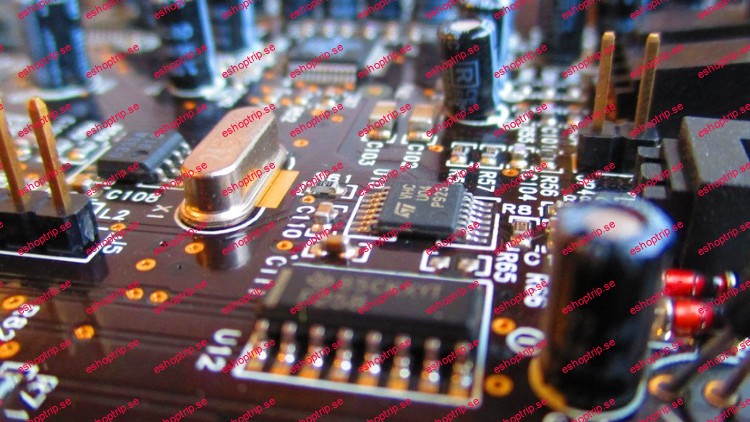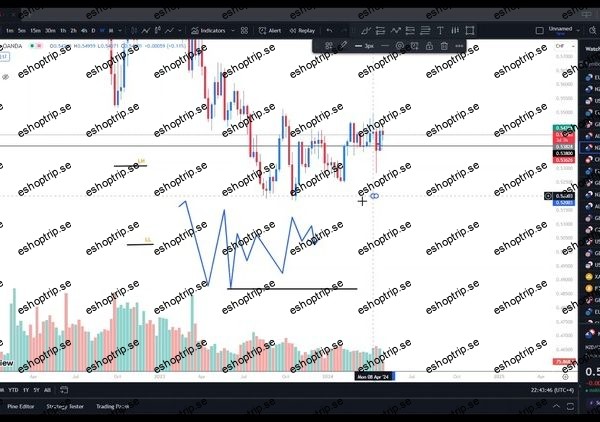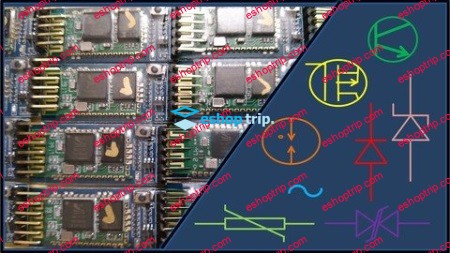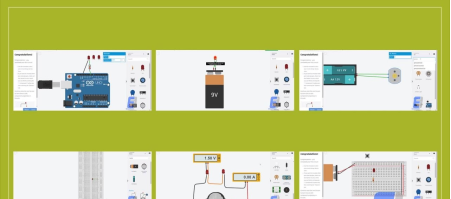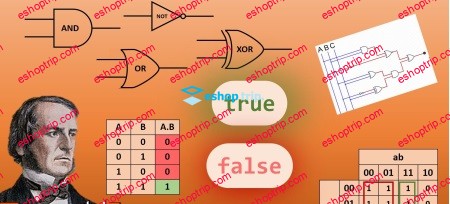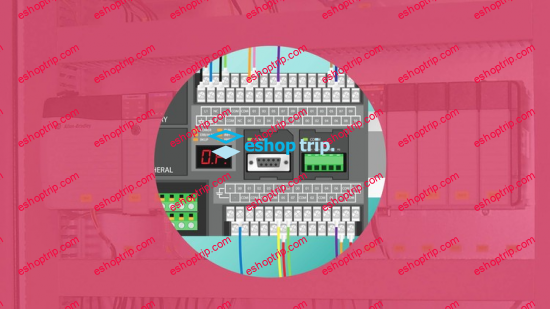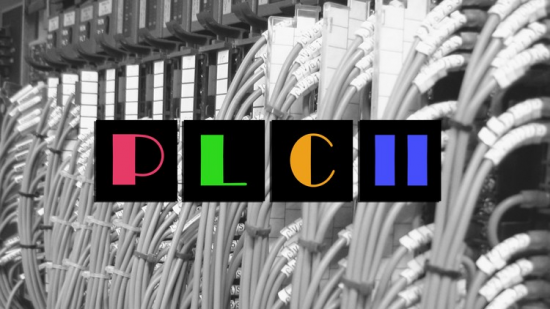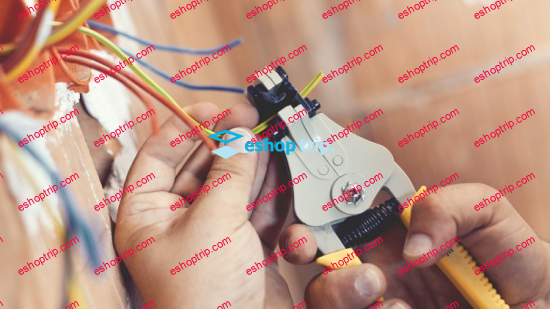Published 5/2024
Created by Hitesh Dholakiya
MP4 | Video: h264, 1280×720 | Audio: AAC, 44.1 KHz, 2 Ch
Genre: eLearning | Language: English | Duration: 106 Lectures ( 20h 53m ) | Size: 22.4 GB
Electronics Unplugged: Expert-led learning on Diodes, BJT, JFET, MOSFET Followed by Hands-on Multisim Simulator Practice
What you’ll learn:
Various PN Junction Applications in Electronics
Energy Band of a Semiconductor
VI Characteristics of PN Junction Diode
Diode Testing
Half Wave, Full Wave Rectifiers
Clipper Circuits
Clamper Circuits
Zener Diode as a Voltage Regulator
LED Basics and its examples
Photo Diode, Tunnel Diode, Solar Cell and Tunnel Diode
BJT basics and its working
CE, CB and CC configuration of BJT Transistor
Examples of CE, CB and CC configuration of BJT
AC Analysis of BJT
re, Hybrid Pi Model of BJT
Darlington Pair of BJT
JFET Basics and working
JFET Transfer Characteristics
MOSFET basics, IV characteristics
Channel Length Modulation of MOSFET
gm and rd of MOSFET
Body Effect in MOSFET
Examples on MOSFET
IC Technology
Practical Session on Multisim Software
Requirements:
No Prior knowledge is needed. You will learn step by step from basic.
Description:
This Basic Electronics course is specially designed for students who want to clear basic to advanced fundamentals of Basic Electronics. It is also useful for working professionals. It forms the foundation to enter into the fields like Embedded Systems, VLSI, Instrumentations etc. This course covers almost all universities’ syllabus. This is a unique course in the online marketplace.This course applies to many branches of Degree, Diploma and Science Students. After completing this course students will be able to understand basic to advanced level concepts of Basic Electronics which will be a stepping stone for starting many lucrative career fields.This course covers the following topics.1. PN Junction Applications in Electronics: Energy Bands and Classifications of Solid Materials, Types of Semiconductor Materials, PN Junction Diode, VI Characteristics of PN Junction Diode, Dynamic Resistance of Diode, Effect of Temperature in PN Junction, Diode Testing and Diode Quality verification, Ideal Diode and Practical Diode Approximation, Diode Ratings, Half Wave Rectifier, Parameters of Half Wave Rectifier, Full Wave Rectifier, Parameters of Full Wave Rectifier, Comparison of Half Wave Rectifier and Full Wave Rectifier, Filters in Rectifier, Capacitor Filter, Inductor Filter, Pi Filter and T Filter in Rectifier, Linear and Nonlinear Wave Shaping Circuit, Clipper Circuits, Examples of Clipper Circuits, Clamper Circuits, Examples of Clamper Circuits, Zener Diode, Zener Diode as Voltage Regulator, Examples of Zener Diode. 2. BJT (Bipolar Junction Transistor) Applications in Electronics: BJT, BJT Operational Regions, BJT Working, Common Base Configuration of BJT, Common Emitter Configuration of BJT, Relationship of Alpha, Beta and Gamma of BJT, DC Load Line of BJT, Bias Stabilization of BJT, Stability Factor of BJT, Fixed Bias of BJT, Emitter Bias of BJT, Collector Feedback Bias of BJT, Voltage Divider Bias of BJT, Examples of Transistor Biasing, Transistor as Switch. 3. AC Analysis of BJT: Coupling Capacitor with Transistor, AC Analysis of BJT, AC Load Line of BJT, Hybrid Parameters of BJT, re Model of BJT, Hybrid Pi Model of BJT, Common Emitter Amplifier using BJT, Examples of BJT, Darlington Pair of BJT. 4. FET(Field Effect Transistor) in Electronics: Comparison of FET and BJT, JFET Working, JFET Output Characteristics, JFET Transfer Characteristics, JFET as Voltage Controlled Resistor, Parameters of JFET, Examples of JFET.5.MOSFET Transistor in Electronics:MOSFET, IV Characteristics of MOSFET, Channel Length Modulation of MOSFET, Small Signal Model of MOSFET, Transconductance and Drain Resistance of MOSFET, Body Effect in MOSFET, Examples of MOSFET, Examples of IC Technology.6. Practical Session on different Electronics Components: Practical session on various Electronics Components such as Diode, BJT, FET, Clipper in Multisim Software will enhance theoretical aspects of the course So, go through this entire course step by step and I am pretty sure that you will get thorough knowledge about this course.All the best…
Who this course is for:
Students (Engineering, Diploma, Science)
Hardware Engineers
Those who are keen on mastering the basics of electronics.
Hobbyists
Anyone with a curiosity for technology
Homepage
https://anonymz.com/?https://www.udemy.com/course/foundations-of-electronics-diodes-bjt-jfet-mosfet/
